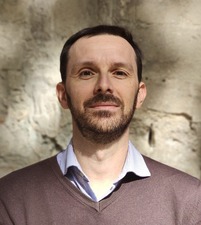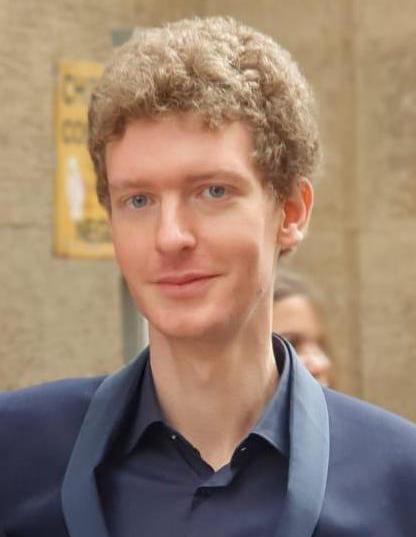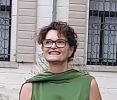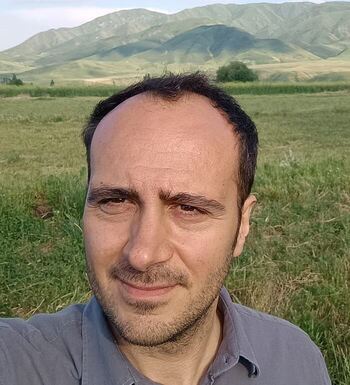Studying at the University of Verona
Here you can find information on the organisational aspects of the Programme, lecture timetables, learning activities and useful contact details for your time at the University, from enrolment to graduation.
Academic calendar
The academic calendar shows the deadlines and scheduled events that are relevant to students, teaching and technical-administrative staff of the University. Public holidays and University closures are also indicated. The academic year normally begins on 1 October each year and ends on 30 September of the following year.
Course calendar
The Academic Calendar sets out the degree programme lecture and exam timetables, as well as the relevant university closure dates..
| Period | From | To |
|---|---|---|
| Sem. 1A | Sep 23, 2019 | Oct 31, 2019 |
| Sem. 1B | Nov 11, 2019 | Jan 11, 2020 |
| Sem. 2A | Feb 17, 2020 | Mar 28, 2020 |
| Sem. 2B | Apr 6, 2020 | May 30, 2020 |
| Session | From | To |
|---|---|---|
| Sessione d'esame invernale | Jan 13, 2020 | Feb 15, 2020 |
| Sessione d'esame estiva | Jun 3, 2020 | Jul 25, 2020 |
| Sessione d'esame autunnale | Aug 24, 2020 | Sep 19, 2020 |
| Session | From | To |
|---|---|---|
| Sessione di laurea estiva | Jul 6, 2020 | Jul 11, 2020 |
| Sessione di laurea autunnale | Nov 2, 2020 | Nov 6, 2020 |
| Sessione di laurea invernale | Apr 7, 2021 | Apr 13, 2021 |
| Period | From | To |
|---|---|---|
| Festa di Ognissanti | Nov 1, 2019 | Nov 1, 2019 |
| Chiusura Ateneo | Nov 2, 2019 | Nov 2, 2019 |
| Festa dell'Immacolata | Dec 8, 2019 | Dec 8, 2019 |
| Vacanze di Natale | Dec 23, 2019 | Jan 6, 2020 |
| Vacanze di Pasqua | Apr 10, 2020 | Apr 14, 2020 |
| Festa della liberazione | Apr 25, 2020 | Apr 25, 2020 |
| Festa del lavoro | May 1, 2020 | May 1, 2020 |
| Sospensione delle lezioni | May 2, 2020 | May 2, 2020 |
| Festa del Santo Patrono | May 21, 2020 | May 21, 2020 |
| Sospensione delle lezioni | May 22, 2020 | May 23, 2020 |
| Festa della Repubblica | Jun 2, 2020 | Jun 2, 2020 |
| Vacanze estive | Aug 10, 2020 | Aug 15, 2020 |
Exam calendar
Exam dates and rounds are managed by the relevant Humanistic Studies Teaching and Student Services Unit.
To view all the exam sessions available, please use the Exam dashboard on ESSE3.
If you forgot your login details or have problems logging in, please contact the relevant IT HelpDesk, or check the login details recovery web page.
Academic staff
 matteo.bonazzi@univr.it
matteo.bonazzi@univr.it
 evita.calabrese@univr.it
evita.calabrese@univr.it
 giacomo.girardi@univr.it
giacomo.girardi@univr.it
 pieralberto.porcedducilione@univr.it; pierre_pordd@yahoo.it
pieralberto.porcedducilione@univr.it; pierre_pordd@yahoo.it
 045 8028732
045 8028732
 mariarenata.zanchin@univr.it
mariarenata.zanchin@univr.it
Study Plan
The Study Plan includes all modules, teaching and learning activities that each student will need to undertake during their time at the University.
Please select your Study Plan based on your enrollment year.
1° Year
| Modules | Credits | TAF | SSD |
|---|
Other activities2° Year activated in the A.Y. 2020/2021
| Modules | Credits | TAF | SSD |
|---|
1 module to be chosen between the following
1 module to be chosen between the following3 modules to be chosen among the following3° Year activated in the A.Y. 2021/2022
| Modules | Credits | TAF | SSD |
|---|
3 modules to be chosen among the following1 module to be chosen between the following| Modules | Credits | TAF | SSD |
|---|
Other activities| Modules | Credits | TAF | SSD |
|---|
1 module to be chosen between the following
1 module to be chosen between the following3 modules to be chosen among the following| Modules | Credits | TAF | SSD |
|---|
3 modules to be chosen among the following1 module to be chosen between the following| Modules | Credits | TAF | SSD |
|---|
2 modules to be chosen among the following3 modules to be chosen among the followingLegend | Type of training activity (TTA)
TAF (Type of Educational Activity) All courses and activities are classified into different types of educational activities, indicated by a letter.
Type D and Type F activities
Modules not yet included
Roman history - MODULO 1 (2019/2020)
Teaching code
4S007531
Teacher
Credits
6
Also offered in courses:
- Roman History (i p) - I MODULO PARTE (I) of the course Bachelor's degree in Philosophy
- Roman History (i) of the course Bachelor’s degree in Cultural Heritage
- Roman History (i) of the course Bachelor’s degree in Humanities
- Roman History (i p) - I MODULO PARTE (I) of the course Bachelor’s degree in Humanities
Language
Italian
Scientific Disciplinary Sector (SSD)
L-ANT/03 - ROMAN HISTORY
Period
Sem. 1A dal Sep 23, 2019 al Oct 31, 2019.
Learning outcomes
The course is aimed at improving the students’ knowledge of the fundamental principles which the Roman society was based on, the dialectics between Romans and non-Romans (in particular the inhabitants of provinces), and the grant of the Roman citizenship to the inhabitants of the whole Empire. The analysis will focus on the documents concerning the different rights of cities in Italy and in the provinces.
The critical analysis of the documentary sources (either archaeological or literary or epigraphic) will be introduced to students. This analysis is meant to allow students to distinguish and understand the peculiar features of the different kinds of documentation and subsequently compare to one another; it is also meant to single out and describe the principles which the Roman social life was based on, the Roman capability of integrating foreigners into their own society and politic life, and the importance of the Constitutio Antoniniana which modified deeply the relationship between Italy and the provinces. Another aim is that of let students understand the reasons why the bases of the social life in the Roman world had been discarded in the 3rd century.
Students will be able to evaluate autonomously some testimonies to Roman history by means of comparisons between different authors or between authors and different kinds of documentation, in order to evaluate the reliability of each document.
Students are expected to improve their communication skill by expressing their opinions or even their doubts concerning the dealt topics and by receiving answers and directions about how to organize their speech.
The understanding skill should be improved, as well by means of a critical reading of historical texts and the study of images of monuments and other iconographies.
At the end of the teaching activities, a student should be able to show that he has understood the most important problems discussed in the classes, that he is able to analyse in a critical manner both the sources and the iconographies taken into account. A student should explain this following a logical series of points, clearly and on the basis of the fundamental documents.
Program
Historical aspects of the 3rd century CE.
1) classes devoted to selected topics;
2) knowledge of passages from classical authors and monuments which will be read and commented during the course;
The use of a historical atlas is recommended.
Further readings (their reading is not mandatory):
Clare Rowan, Under divine auspices: divine ideology and the visualisation of imperial power in the Severan period, Cambridge, Cambridge Univ. Press, 2012
Mario Mazza, Le maschere del potere : cultura e politica nella tarda antichità, Napoli: Jovene, 1986
Students who are unable to attend every class may use the E-Learning site of the University of Verona, where they may find the recorded lessons, the images and texts which are necessary for studying.
Erasmus students who have some difficulties in understanding Italian can ask the professor for one or more abstracts in English of the lessons’ content.
| Author | Title | Publishing house | Year | ISBN | Notes |
|---|---|---|---|---|---|
| Momigliano, Arnaldo | Manuale di storia romana | UTET | 2016 | ||
| Tito Livio | Storia di Roma dalla sua fondazione | Rizzoli | 1982 | ristampato più volte. Anche altre edizioni sono disponibili, per esempio, quella della Garzanti. | |
| Mazza, Mario, a cura di | Storia di Roma dalle origini alla tarda antichità | Edizioni del Prisma | 2013 | ||
| Plutarco | Vite parallele opera completa | Mondadori | 1965 |
Examination Methods
oral exam. Questions will be posed in order to ascertain what learning and knowing level is reached. In case, questions could go further in deep by focussing on texts and/or monuments discussed during the course.
Career prospects
Module/Programme news
News for students
There you will find information, resources and services useful during your time at the University (Student’s exam record, your study plan on ESSE3, Distance Learning courses, university email account, office forms, administrative procedures, etc.). You can log into MyUnivr with your GIA login details: only in this way will you be able to receive notification of all the notices from your teachers and your secretariat via email and also via the Univr app.
Student mentoring
Linguistic training CLA
Gestione carriere
Practical information for students
Documents
| Title | Info File |
|---|---|
|
|
pdf, it, 325 KB, 16/07/24 |
|
|
pdf, it, 212 KB, 02/05/23 |
|
|
pdf, it, 131 KB, 02/05/23 |
Graduation
Documents
| Title | Info File |
|---|---|
|
|
pdf, it, 109 KB, 12/07/24 |
|
|
pdf, it, 112 KB, 14/05/24 |
List of thesis proposals
Stage e Tirocini
Student login and resources
Modalità e sedi di frequenza
La frequenza non è obbligatoria.
Maggiori dettagli in merito all'obbligo di frequenza vengono riportati nel Regolamento del corso di studio disponibile alla voce Regolamenti nel menu Il Corso. Anche se il regolamento non prevede un obbligo specifico, verifica le indicazioni previste dal singolo docente per ciascun insegnamento o per eventuali laboratori e/o tirocinio.
È consentita l'iscrizione a tempo parziale. Per saperne di più consulta la pagina Possibilità di iscrizione Part time.
Le sedi di svolgimento delle lezioni e degli esami sono le seguenti
- Polo Zanotto (vicino si trova il Palazzo di Lettere)
- Palazzo ex Economia
- Polo Santa Marta
- Istituto ex Orsoline
- Palazzo Zorzi (Lungadige Porta Vittoria, 17 - 37129 Verona)
- Chiostro Santa Maria delle Vittorie, Lungadige Porta Vittoria, 41






































